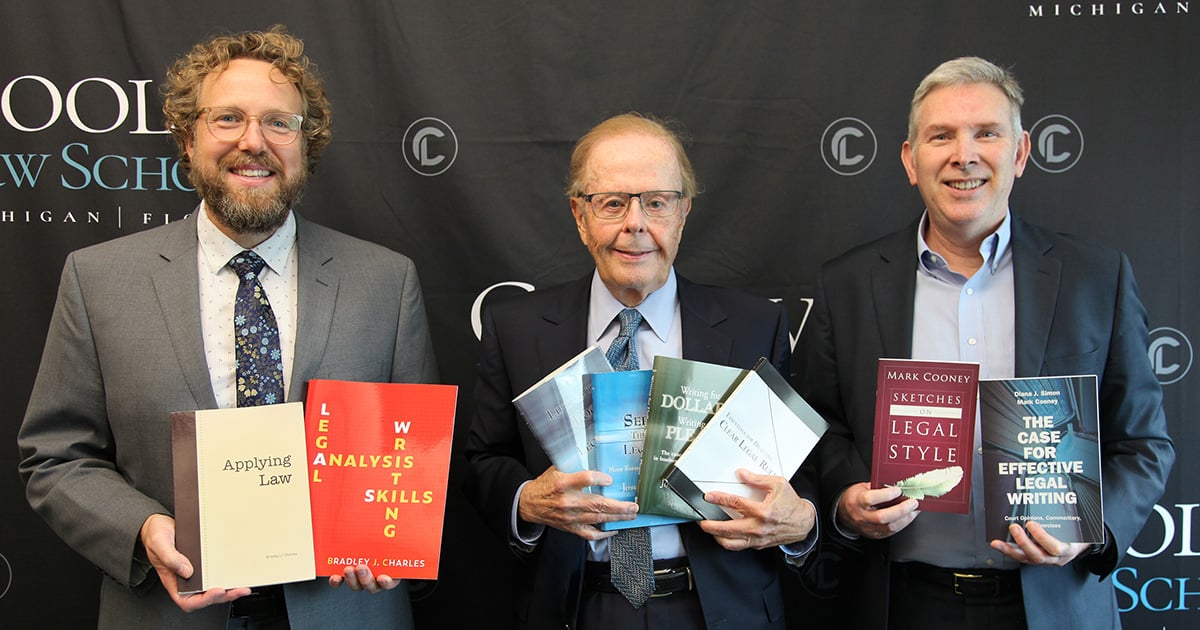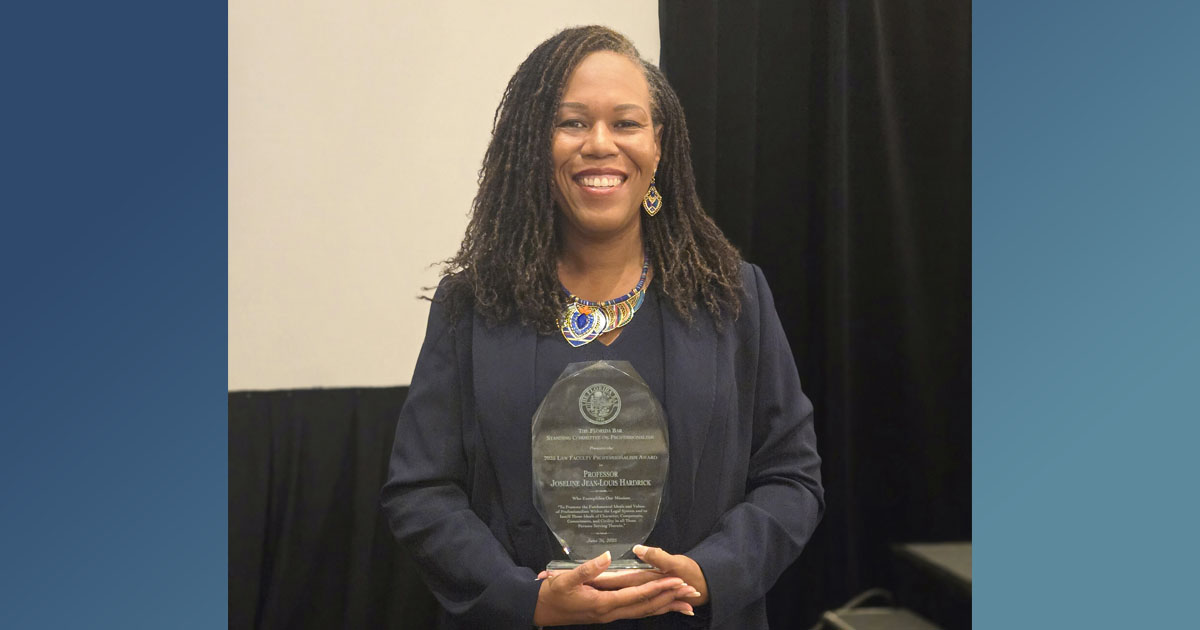
Cooley Law School Professors Brad Charles and Mark Cooney and Emeritus Professor Joseph Kimble recently published new books about skill building, clear drafting, and the importance of writing in practice, reflecting Cooley's longstanding commitment to practical skills, plain language, and clear communication.
The three professors, who are multi-book authors, “have always been active writers, and we each wanted to offer something new and helpful to students and lawyers,” said Charles.
Charles's textbook, “Legal Analysis Writing Skills,” is a comprehensive how-to guide for new legal writers. His overriding message to students is that they’re learning skills – not documents – which are transferable to all legal documents, from appellate briefs to correspondence and exam essays.
Cooney’s “The Case for Effective Legal Writing,” coauthored by University of Arizona Professor Diana Simon, is the first of its kind: a legal-writing casebook. The book gathers cases from across the nation in which the quality of a lawyer's writing affected the case's outcome or a court's resolution of an issue.
Kimble's latest book, “Essentials for Drafting Clear Legal Rules,” is a long-awaited collaboration with Bryan Garner. It captures the authors’ decades of work restyling all five sets of federal court rules. The book is a trove of advice and examples on legal drafting, and it will be invaluable to all lawyers, especially legislative drafters, rule drafters, and transactional attorneys. The book is available for free at the U.S. Courts website.
Cooley Law School was one of the first law schools to recognize that mastery of research techniques and writing skills is as important as mastery of torts, contracts, and property law. Cooley is also home to the Kimble Center for Legal Drafting, an academic and public-service center with a board of internationally renowned advisors.
Photo: Cooley Law School Professors Brad Charles (left) and Mark Cooney (right), and Emeritus Professor Joseph Kimble (middle) recently published new books about skill building, clear drafting, and the importance of writing in practice, reflecting Cooley's longstanding commitment to practical skills, plain language, and clear communication.
